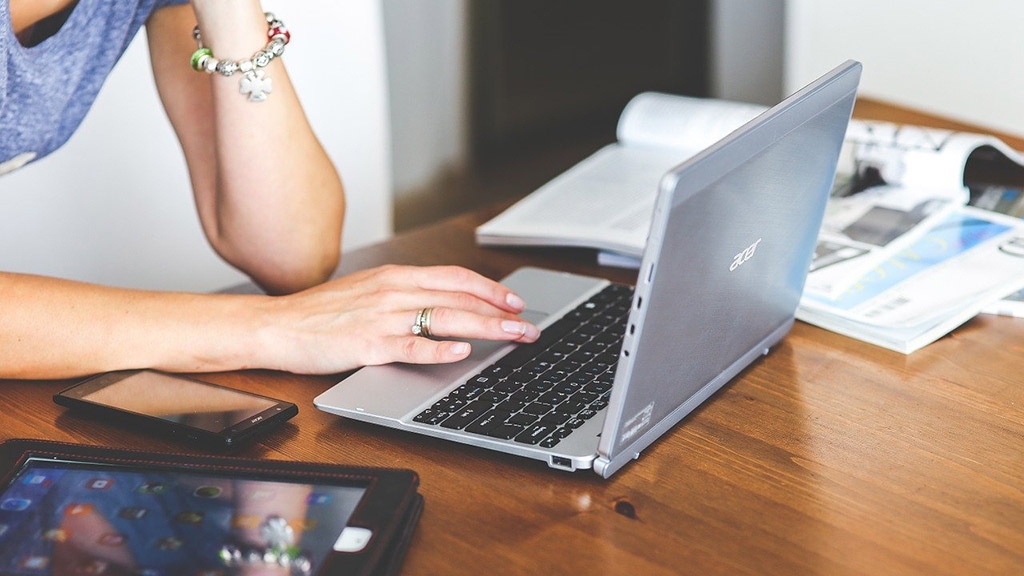UOC offers first free online course in Spain on self-managing health
The UOC's MOOC on health literacy will provide participants with tools they can use to take charge of their own health and help them make more conscious decisions.
On 27 January the UOC will begin a massive open online course (MOOC) on health literacy, a pioneering initiative in Spain. The course, titled Alfabetització per a la Salut: Propostes i idees per cuidar i cuidar-nos (Health Literacy: Proposals and ideas on caring for others and ourselves), has five modules: introduction, childhood, adolescence, adulthood and retirement. It will last five weeks, it's free and no prior knowledge of the subject is required to sign up.
Get health literate for a healthier you
Back in 2016, the World Health Organization (WHO) was already discussing health literacy as an indispensable key to maintaining healthy populations. According to various studies, a high level of health literacy leads to positive results for the healthcare system as it reduces deaths, hospitalization and the associated healthcare costs. So, in order to foster a healthy population, as well as having good health-related knowledge, WHO has also emphasized the need for good health governance to make our cities healthier places to live in.
With its long history in quality online training and in supporting the evolution of e-health, the UOC is offering this MOOC with an eye to successfully following the path laid out by WHO. The course leaders will be professors Eulàlia Hernández, Manuel Armayones and Antoni Baena, who are all UOC faculty, members of the UOC's eHealth Center, doctors in psychology and experts in health literacy and education. They will also be joined by other experts from the UOC, professors from the UAB and the UPF, and health professionals from institutions such as the Agency for Healthcare Quality and Assessment of Catalonia (AQuAS), the Espaijove.net programme, Infermeria Virtual (from the Nurses Association of Barcelona) and the Government of Catalonia's Consorci Sanitari Integral (Comprehensive Health Consortium).
The MOOC will be shared over both Miríadax and Twitter and will generate a debate that will be shared via the @moocSaludUOCX account, using the hashtag #alfabeSaludUOC. The account is run and managed by two external experts in this field, Mònica Fernández and Daria Roca. To follow the course, participants will need a Twitter account.
Those who follow the course will acquire tools to help them discern, understand and evaluate the masses of information available to the general public, and to work out what to trust and how to harness it to make decisions for the good of their own health. As Antoni Baena explained, "the internet is a primary source of information that people consult on a daily basis, but it can be a false friend if we don't know how to differentiate between trustworthy and misleading information".
Health empowerment, are we falling behind?
Europe is still falling short in terms of the population's health literacy levels. According to the latest European health literacy survey published by the European Journal of Public Health, almost 50% of Europeans have a low level of health literacy. In Spain, the number of people who have an adequate level of literacy is only slightly higher, at 50.8%. As Manuel Armayones explained, the MOOC "will be able to answer all our questions on literacy, such as, should I take this medicine?; under what circumstances should I avoid it?, or what should I be doing to stay healthy?". The course will also focus particularly on helping us develop critical analysis skills.
Participants will learn how "we can all be in charge of our own health so that in our day-to-day lives we can share advice on how to treat ailments, create positive, healthy environments and learn from those who know how to take care of their health correctly", when it comes to issues like the amount of sleep we get or what we eat. They will also learn from people working in the field about projects that are already up and running, helping people look after their health in each stage of their lives. To sum up, Armayones explained that "health literacy is really about helping us take care of ourselves and improve our own health, as well as that of the people around us".
This course is a window into the big wide world of health literacy that we'll all have to become familiar with in the near future. In the words of Eulàlia Hernández, "acquiring literacy is a process of growth that the public and the healthcare system must undertake together".
More information: Alfabetització en Salut: Propostes i idees per cuidar i cuidar-nos (Health Literacy: Proposals and ideas on caring for others and ourselves)
Experts UOC
Press contact
-
Editorial department
